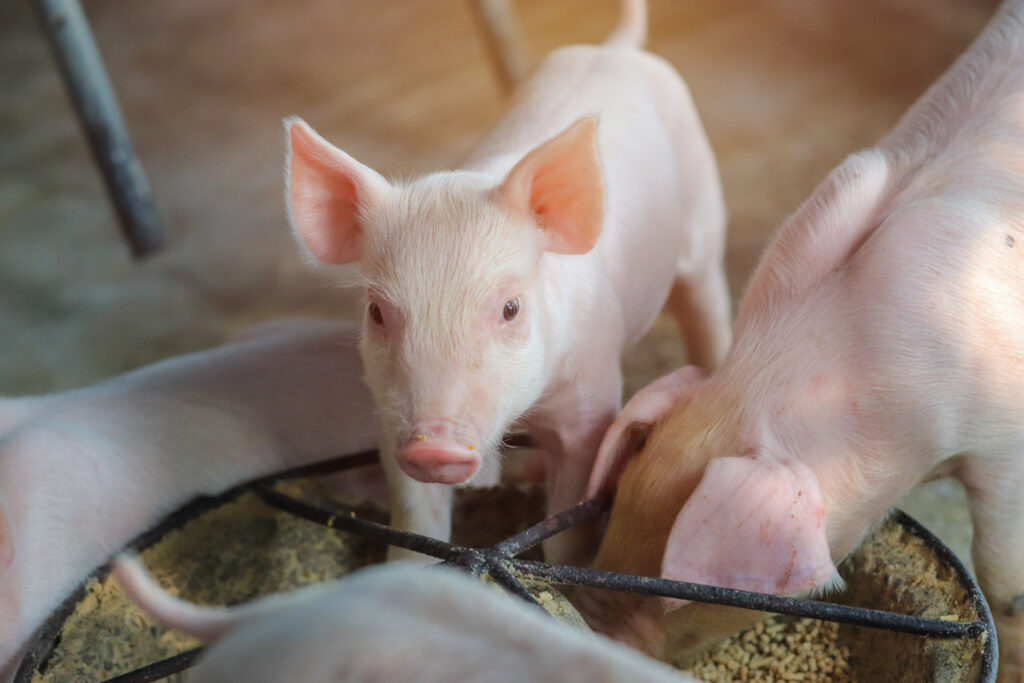FABRA UK, the trade association for the UK animal by-products sector, has urged farming industry stakeholders to support new Defra proposal for significant changes to the rules governing non-ruminant proteins in livestock feed.
The consultation outlines proposals to change the feed control rules, brought in to prevent the spread of BSE in 1988, in England and Wales to allow:
- Poultry processed animal protein (PAP) in pig feed.
- Porcine PAP in poultry feed.
- Insect PAP in pig and poultry feed.
- Ruminant collagen and gelatine (C&G) in non-ruminant feed.
The change is already in place in the EU and Scotland is currently consulting on a similar move.
Adrian Kesterson, FABRA’s technical advisor, said there is a compelling ‘safety and sustainability’ case for changing animal feed rules, and urged the industry to ‘make our voices heard’.
“Restrictions on pig and poultry feed were brought in as a precautionary measure within the UK’s BSE prevention strategy. Scientific evidence and experience from Europe demonstrate that the proposed changes are entirely safe and offer advantages in terms of nutrition, animal welfare and sustainability,” said Mr Kesterson.
“Our members produce PAP and support updating the feed rules. We encourage farm to fork stakeholders to respond favourably on the changes. We recognise that safety will be foremost in the public’s minds. All PAP products are made from healthy animals with high standards for hygiene and traceability.
Proteins derived from ruminants (cows, sheep and goats) and intra-species consumption will remain prohibited with strict processing rules and testing to back this up.”
FABRA also support proposals for insect proteins to be included in pig and poultry feed as well as
ruminant gelatine in non-ruminant feed.
It said PAP offers nutritional benefits for pigs and poultry which are both naturally omnivorous requiring rich
sources of protein in their feed. Work in Europe suggests optimal inclusion rates for PAP are 5–10% at
which they improve animal health and productivity in comparison to vegetable protein sources like
soymeal.
Soya imports
The UK currently imports much of its protein for animal feed, primarily soya from North and South America, so using locally produced PAP can help close the ‘protein gap’, improving the UK’s food security. Using by-products in feed maximises their value, in line with the food waste hierarchy, Mr Kesterson said.
“It also supports efforts to reduce the carbon footprint of feed and the wider food supply chain contributing to the UK’s Net Zero Targets,” he added.
Animal by-products offer significant potential for greenhouse gas reduction, principally through avoided deforestation. Poultry and porcine PAP have just 20-25% of the greenhouse gas emissions of soymeal, according to research carried in Europe, with the verified results available in the Global Feed Lifecycle Assessment Institute (GFLI) database, Mr Kesterson added.
The EU made similar changes to its legislation in 2021 and the change would help create a level playing field for the UK livestock sector.
The consultation in Scotland has now closed while the England & Wales consultation closes on April 1. The intention is that any potential future changes made would be implemented at the same time across Great Britain.
NPA response
NPA chief executive Lizzie Wilson said: “This will really help our environmental footprint by replacing soya, which is imported from South America or North America, as a source of protein.
“However, it is not going to be a silver bullet to our protein problem for many reasons. Of course, it has to be completely safe and well regulated and we will need to look at who delivers and who pays for that.
“Also, there are constraints around single-species production, both practicality in its manufacture and in terms of cost, which means it might not lend itself to the UK pig and poultry feed sectors.
“Also, it’s not cheap – protein finds its own level in the market. This is permitted in Europe, but is hardly used for all these reasons, and PAP already has a very lucrative export market.”




